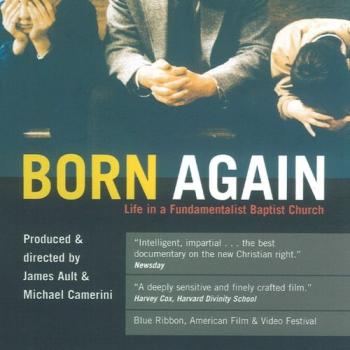Evangelical Christian Thoughts about “Mindfulness”
Recently I had the privilege of reading a fine doctoral dissertation by a brilliant young Christian social worker and counselor about “Mindfulness.” I had already seen and heard the term but was not fully aware of what it meant. Her dissertation argued, very cogently, that, even though contemporary Mindfulness is often rooted in Buddhism, Christians can use it helpfully and that there are historical Christian precedents for it in especially Christian mysticism. In other words, her dissertation was a well-researched and, I judge, successful exercise in what is called “faith-learning integration” or “integration of Christian faith with a discipline of study and practice not normally associated with Christian faith.”
*Sidebar: The opinions expressed here are my own (or those of the guest writer); I do not speak for any other person, group or organization; nor do I imply that the opinions expressed here reflect those of any other person, group or organization unless I say so specifically. Before commenting read the entire post and the “Note to commenters” at its end.*
I was privileged to serve on this student’s dissertation examination committee and was present at her dissertation defense. She clearly “knew her stuff”—the history and theory behind Mindfulness as a counseling technique and the history and theory behind “contemplative Christianity.” She brought them together in creative tension and integration—demonstrating how Christian counselors can use Mindfulness training (of clients) rooted in Christianity without any dependence on Buddhism.
At great risk of getting it at least somewhat wrong, I will now describe in a very general way what “Mindfulness” is—as a counseling technique designed to help clients/patients cope with stress and anxiety. To most non-Christian therapists its closest analog is Zen meditation. Some Zen masters have called it “stilling the ‘monkey mind’.” The idea is to empty the mind of analytical thoughts, perhaps all thoughts, and focusing the mind on being present in the moment without judgment. It is, therefore, a meditative relaxation technique and has been shown to reduce stress and anxiety when practiced under the guidance and care of a trained therapist.
Now, also at great risk of being contradicted, I will attempt to describe in a very general way what “contemplative Christianity” is—as a spiritual practice designed to help Christians commune with God and overcome focus on self in prayer. Two of the leading advocates of contemplative Christianity are Basil Pennington and Thomas Keating. One could also reach back to mention Thomas Merton. Advocates of contemplative Christianity build on the mystical tradition of especially Catholic Christianity to teach a form of prayer that does not use words. I think that is key to contemplative Christianity—to pray without words. In such prayer one focuses on being receptive to God while avoiding “talking to” God.
During my thirty plus years of teaching theology in two Baptist institutions of higher education I have several times come across Christians who are committed to contemplative Christianity and its form of “prayer.” That is not to say it is their only spiritual exercise; it is only to say they seem especially devoted to using it and promoting its use among fellow Christians.
Two of my favorite Christian theologians, however, have criticized “wordless prayer” as an oxymoron: Donald G. Bloesch in The Struggle of Prayer and Emil Brunner in his chapter on prayer in Dogmatics 3: The Christian Doctrine of the Church, Faith and the Consummation. Neither of these mentors (of mine) rejected wordless listening for God as a form of Christian spirituality; both rejected calling it “prayer.” According to them, and I must agree, there is no “wordless praying” in the Bible. In the Bible prayer is always, as Bloesch insists, “conversation with God.” Yes, listening for God’s response is a vital part of that conversation, but “prayer without words” is not prayer; it is meditation.
I have no theological objection to merging “contemplative” spiritual practice with Christian counseling in therapy so long as it does not include elements of Buddhism (e.g., use of Zen philosophy or spirituality) or Hinduism (e.g., use of a mantra in meditation). I do discourage those practices among Christians because they infringe on God’s sole Lordship and move toward syncretism. Much contemporary “Mindfulness” theory includes—whether this is mentioned to clients/patients or not—some idea of “union with the All” or “union with the sacred,” etc., that comes together with dissolution of self. Christian union with God is communion between God and the human self; it does not involve dissolution or loss of self in union with God. Becoming “one with God” in an ontological sense has consistently been criticized by all branches of orthodox Christianity—Orthodox, Catholic and Protestant—insofar as it implies some ontological blending together of God and the self resulting in loss of clear distinction. Eastern Orthodox “deification” (which some Catholics and Protestants also believe) does not mean, contrary to what many outsiders think, such a blending of the self into God. It means receiving a partial participation in God’s immortal life as a gift of grace while remaining a creature.
*Note to commenters: This blog is not a discussion board; please respond with a question or comment solely to me. If you do not share my evangelical Christian perspective (very broadly defined), feel free to ask a question for clarification, but know that this is not a space for debating incommensurate perspectives/worldviews. In any case, know that there is no guarantee that your question or comment will be posted by the moderator or answered by the writer. If you hope for your question or comment to appear here and be answered or responded to, make sure it is civil, respectful, and “on topic.” Do not comment if you have not read the entire post and do not misrepresent what it says. Keep any comment (including questions) to minimal length; do not post essays, sermons or testimonies here. Do not post links to internet sites here. This is a space for expressions of the blogger’s (or guest writers’) opinions and constructive dialogue among evangelical Christians (very broadly defined).
















